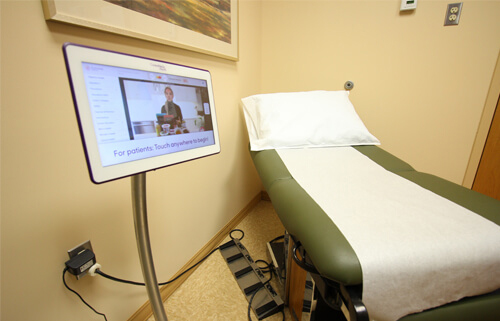Overview
Helicobacter Pylori (H. Pylori) is a bacteria that can infect the stomach and digestive system, causing complications like peptic ulcers, gastritis (inflammation) of the stomach lining, and even cancer. While over half of the world has contracted Helicobacter Pylori at some time, most people don’t show any signs or symptoms of the bacteria. Helicobacter Pylori is treatable with antibiotics.
Symptoms of Helicobacter Pylori
While most people who contract Helicobacter Pylori have no symptoms, those who do should seek help immediately. It is vital that you do not ignore persistent symptoms or let them go unchecked. Common symptoms may include:
- Burning, ache or pain in the abdomen
- Loss of appetite
- Nausea and vomiting
- Bloating
- Weight Loss
- Frequent Burping
Risk Factors
Helicobacter Pylori is most common in developing countries or places with poor sanitation systems, water sources, and living conditions. It can be transmitted through contaminated food, water, utensils or another person’s saliva/bodily fluids. Most infections are acquired within the first 5 years of life, but many children show no symptoms. It has yet to be determined why some people experience symptoms and others do not.
Tests to Diagnose Helicobacter Pylori
There are several options available for testing for Helicobacter Pylori:
- Blood test – Your blood is drawn and tested for antibodies to determine if you have an active infection or ever had a past infection.
- Urea breath test – You swallow a pill containing carbon molecules and then breathe into a bag. If there’s higher than normal levels of carbon in your breath, it means Helicobacter Pylori is present.
- Stool test – Doctors may analyze a stool sample for antigens, abnormal bacteria or proteins that may indicate a Helicobacter Pylori infection.
- Endoscopy – If the other tests fail to diagnose your condition, you may require an endoscopy. This involves the insertion of a thin tube with a camera down the throat, providing a view of your esophagus, stomach, and small intestine.
Treatment Options for Helicobacter Pylori
If you test positive for Helicobacter Pylori, further testing may be required to examine the extent of the infection. You will likely be prescribed several antibiotics to combat the presence of Helicobacter Pylori. Furthermore, if you have sustained damage to your stomach lining, you may be prescribed acid-suppressing drugs such as histamine blockers or proton pump inhibitors. If symptoms are more severe, you may be tested for stomach cancer. Routine tests will be conducted after several weeks to assess your recovery.
Preventing Helicobacter Pylori
Some ways to prevent or reduce the spread of Helicobacter Pylori include:
- Practicing good hygiene. Wash your hands often, especially while handling food or after using the bathroom.
- Don’t consume unclean or uncooked food and water.
- Get tested if you feel unwell after travelling internationally.
- Be educated and vigilant. If you or a loved one experiences any symptoms, don’t hesitate to seek help.





